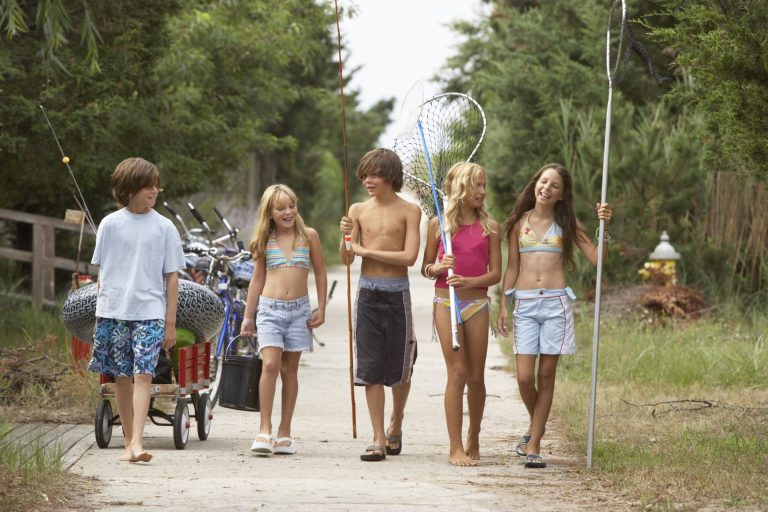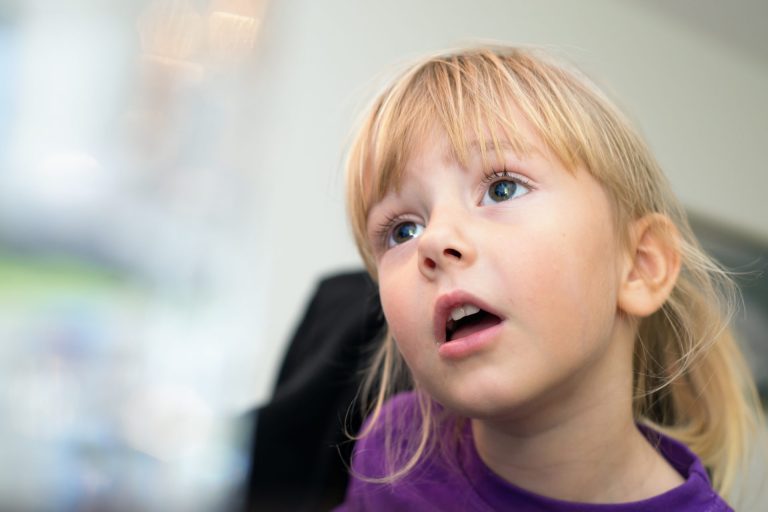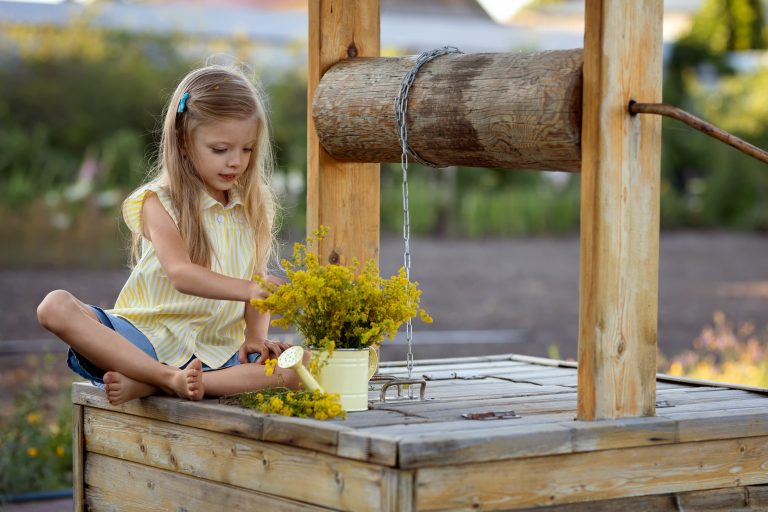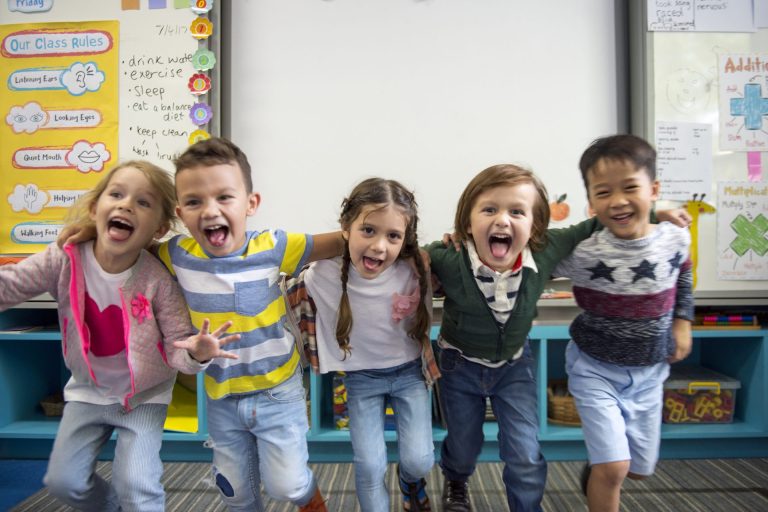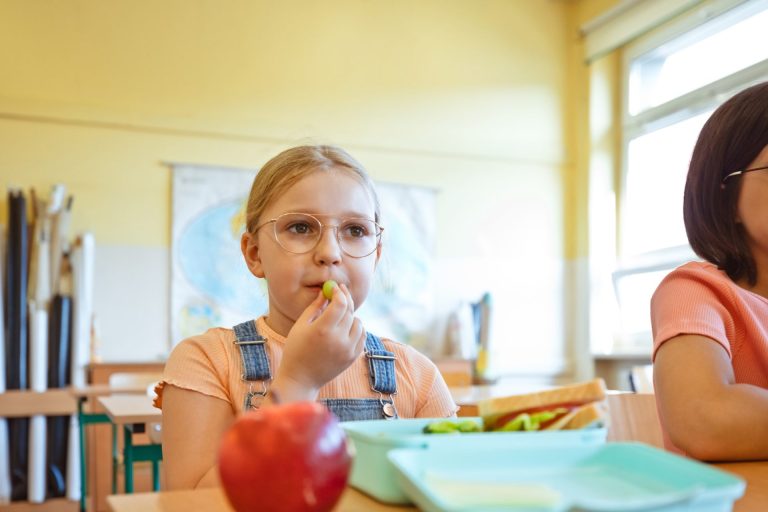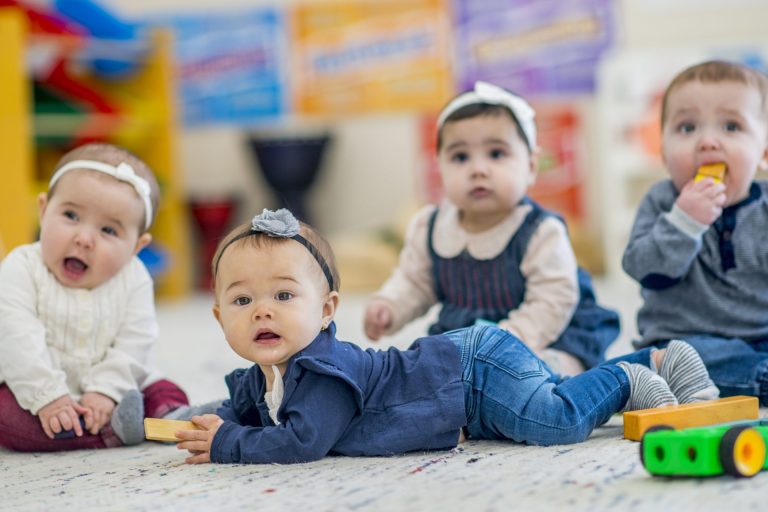Is summertime the reset kids need—or an academic setback? Parents and teachers are divided, and it’s easy to see both sides. What Is the Summer Slide? The summer slide—also known as summer learning loss—is the decline in academic skills that can happen when kids take an extended break from structured learning over the summer months. For many students in the early elementary grades, this slide can mean starting the new school year already behind where they left off. Studies show that students can lose up to two months of math and reading skills during summer vacation if they’re not engaged academically. But what happens when those same kids have been burning out under academic pressure all year long? That’s where the debate begins. Some parents argue that summer is a much-needed pause for mental health and development—while many educators see summer learning as essential to keeping kids on track. So…
Is my toddler ready to transition from daycare to kindergarten? From a teacher-mom of two, here’s what to look for and how to prep your kid like a pro, without overwhelming them! The Daycare to Kindergarten Transition Is a Big Deal Wondering if your toddler is ready for kindergarten? Here are clear signs and simple steps to help with the daycare-to-kindergarten transition. Let’s be real: the jump from daycare to kindergarten can feel like a leap off a cliff—for both of you. One minute your toddler is finger painting and napping after lunch, the next they’re expected to sit still for circle time, line up without tears, and manage a backpack bigger than their torso. Kindergarten brings with it a new set of expectations—not just academically, but socially and emotionally. For many kids, this is the first time they’ll be one of many in a big classroom instead of the…
I was in line at the grocery store when my daughter looked at me and, referring to the cashier, asked (loudly) “is that a boy or a girl?” Cue the internal panic. Do I whisper? Redirect? Pretend I didn’t hear? These moments catch many of us off guard—not because our kids are doing something wrong, but because we want to get it right. I remembered something a friend once told me: You don’t need all the answers. You just need one thing—kindness. (This was about people with disabilities, but the same rule can apply). So, I decided to model kindness in the face of curiosity or confusion – I taught my daughter that people are never something to be whispered about—they’re to be respected, always. Why Kids Ask This Question What to Say in the Moment (Real-Life Scripts) How to Talk About Pronouns with Kids Age-Appropriate Ways to Explain Gender…
With summer in full swing, many parents are scrambling for ways to keep kids busy without defaulting to screens or breaking the bank. That’s where a Montessori summer routine for kids comes in. Why a Montessori Summer Routine Works This simple, child-led approach encourages independence, creativity, and connection—all while helping you stay sane. You don’t need expensive day trips or a packed calendar. With just a few thoughtful changes, your family can thrive this summer. Your Daily Montessori-Inspired Summer Schedule: 1. Morning: Predictable Routine Start the day with a rhythm your kids can count on: Wake up Make the bed Get dressed (let them choose their outfit) Brush teeth Simple morning chore Breakfast By encouraging kids to take care of their own needs from the get-go, you’re teaching life skills and cutting down on morning chaos. Predictability also helps reduce anxiety and behavior struggles throughout the day. 2. Mid-Morning: Free…
The Overlooked Transition Parents Need to Know About Let’s talk about the other big transition no one prepares for: the end-of-school-year behavior! Everyone talks about the first day of school. The backpacks. The nerves. The tears (from you and your kid). But what no one prepares you for is the last day—and all the weird weeks leading up to it. This is an emotional transition too, and it can take families by surprise. As a teacher, I’ve seen kids go from confident and cheerful to clingy and chaotic in a matter of days. I’ve also watched parents feel blindsided, wondering, “What happened to my easygoing kid?” Here’s the truth: this season is big. And just like you supported them into the school year, they need help getting out of it, too. Why Kids Get Weird; The End of School Year Behavior Spoiler: It’s not just excitement for summer. There’s something…
Let’s face it: keeping track of your child’s clothing is practically a full-time job. Between school, daycare, sports, and summer camp, items seem to disappear into the void, never to return. The good news? There are genius ways to label kids’ clothing that actually work, even after dozens of wash cycles. Whether your little one prefers tagless tees or you’re knee-deep in camp prep, Mabel’s Labels has a lineup of solutions designed to stay stuck—and keep your sanity intact. Why Labeling Kids’ Clothes Matters Peel & Stick Name Labels for Clothing: The Game-Changer How to Use the New Peel & Stick Labels Tag Mates™ Stick-On Clothing Labels: The Classic Choice Custom Clothing Stamp: Fast and Fuss-Free Iron-On Labels: A Classic That Still Has Fans The Right Label for Every Kid and Every Closet Why Labeling Kids’ Clothes Matters Sure, it might feel like an extra task—but labeling your kids’ clothes…
So you finally got the IEP signed—after weeks (maybe months) of evaluations, meetings, and hard conversations. You were told, “Now the support begins.” But what if the services don’t show up? What if the accommodations are forgotten, or your child is still struggling just as much? This is the part no one prepares you for: what happens after the paperwork is signed. An IEP is just a starting line, not a finish line. You need to know how to implement the IEP after it’s signed. While it’s a powerful legal document, it’s not a magic wand. Signing the paperwork doesn’t guarantee that every support will be delivered as written or that your child’s school experience will immediately improve. The real work often begins after that last signature. Table of Contents Your IEP Is a Legal Document—But Implementation Varies Common Gaps Between Plan and Practice How to Monitor IEP Implementation Without…
You lovingly packed the lunch. Cut the crusts, added a note, even include a fancy snack you swore they’d love. And yet, the lunchbox comes back untouched. Thermos full. Note still folded. You ask yourself, Why is my neurodivergent kid not eating at school? If this is happening on repeat, you’re not alone—and no, it’s not because your kid is “just picky.” For many children, especially those who are neurodivergent, there are a lot of invisible barriers to eating at school. Medication side effects, sensory overload, social anxiety, even the structure of lunchtime itself can all get in the way. Let’s unpack why it’s happening—and what you can actually do about it. Why Isn’t My Kid Eating at School? It’s More Than Just “Picky Eating” Appetite-Suppressing Meds Make Food Feel Like a Chore Stimulant medications like Adderall, Ritalin, and Vyvanse are commonly prescribed for ADHD and other conditions, but they…
Why Labeling for Daycare Matters Labeling isn’t just a nice-to-have—it’s a must. When your little one heads to daycare, every single item needs a name on it. Not convinced a tiny label makes a big difference? Here’s why it does: Keeps pacifiers, bottles, and utensils out of the wrong mouths Helps daycare staff return lost items quickly Prevents mix-ups with clothes, shoes, and blankets Makes drop-off and pick-up smoother and more organized Makes a super practical gift for new parents! Most licensed childcare centers mandate labeled items for health and safety. It keeps kids’ stuff separate, reduces the spread of germs, and helps caregivers stay organized. If you have to label everything (and you do), you might as well make it cute. Durable, waterproof, and daycare-approved—Mabel’s Labels are practical and adorable! Wait—Labeling is Required? Yep. Most child care centers mandate that every single item be labeled with your child’s name.…
Raising little ones while caring for aging parents isn’t just overwhelming—it’s invisible, emotional, and very real. Here is my experience with sandwich generation stress. What Is the Sandwich Generation? The term “sandwich generation” refers to people—often in their 30s to 50s—who are caring for both their children and their aging parents at the same time. With women giving birth later in life than ever before, more of us are finding ourselves in this squeezed middle space. In fact, the average age of first-time moms in the U.S. has steadily increased to 30 in major cities, and many women (like me) are becoming moms well into their late 30s and 40s. At the same time, 1 in 5 adults in the U.S. is providing unpaid care to an adult with health or aging-related needs. 61% of them are still working. If that sounds like your life, it’s not a coincidence. It’s…

